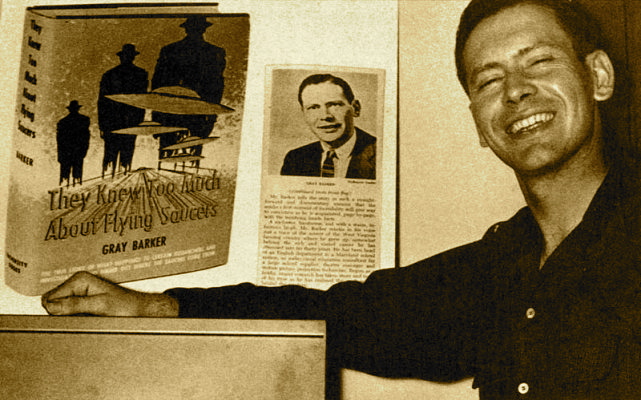Gabriel Mckee, who lives in Beacon, is the author of The Saucerian: UFOs, Men in Black and the Unbelievable Life of Gray Barker. He will talk about the book on May 16 during Nerd Nite Hudson Valley at the Howland Cultural Center.
What drew you to Gray Barker?
I was co-editing a compendium of the vast UFO book library of science-fiction author Jack Womack. I found that the weirdest books had been written and/or published by Gray Barker [1925-1984], who owned a small press in Clarksburg, West Virginia. His writing style was showy and exciting, and he lived a fascinating life as a gay man in a small town in the 1950s, writing about flying saucers.
What was his impact on pop culture?
He essentially invented the men in black [government agents who silence UFO witnesses — Barker wrote a book called They Knew Too Much About Flying Saucers], although the movies took a different spin on the idea. In UFO culture, and conspiracy culture in general, Barker’s influence is harder to pin down. He preceded the internet in a lot of ways because he was publishing the writings of people who didn’t have another outlet. You look at Slenderman, a myth that emerged in internet forums [in 2009], and it’s like Barker’s stories in the 1960s about the Mothman. This happened in the ’60s through zines that came out once or twice a year. On the internet, it’s instantaneous.
You write that UFOs are a literary phenomenon, not a paranormal one. What do you mean?
We don’t have access to UFOs except through stories told about them. Even somebody who sees a UFO is seeing it in the context of a grander cultural narrative. To me, that’s more interesting than speculations about the physical reality.
You refer to Barker as a “queer pioneer.” How does his sexuality tie in?
The curator of the Barker Collection [at the Clarksburg public library], David Houchin, has a theory that you can only be eccentric for one thing, particularly in a small town. Maybe it was easier for Barker to be known as the UFO guy than for his sexuality. He was never fully closeted, and certainly not after he was arrested in the early ’60s. There’s a lot of sexuality in his writing, particularly in The Silver Bridge [a book about the Mothman], in which he makes a connection between paranormal and sexual experiences. He was there for the people on the fringes, whether you’re gay in the South or claiming to have contacted beings from Venus. Those were both ways of being an American in the mid-20th century.

Have UFOs lost their magic?
They’re a lot less fun than they were a long time ago. The subculture that I chronicle took some dark turns in the late ’80s and ’90s, particularly toward right-wing politics. That takes a lot of the joy out of it. Many people who share the narratives don’t have a sense of the cultural history. You’ll see variations of stories that circulated 50 or 60 years ago turning up but without the context of the process through which they were written and shared and developed when they were new. My personal interest in UFO literature drops off a lot after the ’80s, because it’s variations on the same thing, video evidence notwithstanding. It needs a narrative to surround it.


